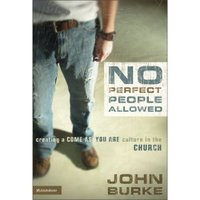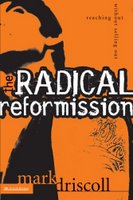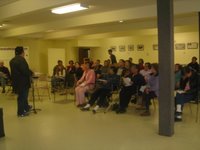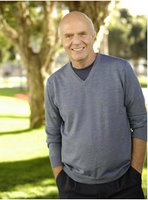Moving from Manila to Ottawa was a big risk for me and Beth. We had no promise of employment. No financial support from the church we had been leading for the past 8 years. It's been 3 months now, and we still have no source of income. It's hard for me to have to rely on others to meet our needs. It's an uncomfortable time in our lives now.
Paul's letter to the Philippians can be compared to a missionary's letter to his prayer partners and supporters. Early on in the letter, the apostle calls the Philippian church his "[partners] in the gospel from the first day until now (1:5)." The life of a apostle/missionary can be a life of sacrifice and hardship. Someone once commented that the hallmark of an apostle is a willingness to suffer. Paul's life is defintely a clear example of suffering for the sake of Christ and his Cause. And yet he could say that he was content.
I rejoice greatly in the Lord that at last you have renewed your concern for me. Indeed, you have been concerned, but you had no opprotunity to show it. I am not saying this because I am in need, for I have learned to be content whatever the circumstances. I know what it is to be in need, and I know what it is to have plenty. I have learned the secret of being content in any and every situation, whether well fed or hungry, whether living in plenty or in want. I can do everything through him who gives me strength. Philippians 4:10-13
Paul learned the secret to being content in whatever his circumstances. The active word here is "learned." The Greek word is "mathano" which means "to learn by use and practice." Contentment isn't something that comes easy. It's something that is learned and developed. Mathano is also a derivative from the Greek word "mathetes" which is the word for disciple. Paul was a disciple of contentment. His life experiences taught him about being content even in a time of need.
What keeps us from being content?
Envy
Too often we are not content because we see our friends, neighbors or other family members possessing things that we ourselves wish we had. We dream of what it would be like to have that car, that house, that barbeque grill, that job, that lawn, that wife! Our misguided fantasies create discontentment in our hearts.
I can point to the specific issues in my own lilfe where I struggled with envy as a preacher/speaker. I remember envying my pastor friend's prophetic anointing or another colleague's connections in the national church network. Years ago, as a young church planter, I recall the envy in my heart towards those who had more and more people attending their own church plants. I remember attending a leadership conference in one of the U.S.'s major megachurches and feeling so intimidated by the sprawling campus, brand-spanking new audio-visual equipment, multiple lcd projectors, and humungous cafeteria/atrium. I think I must have glowed green all weekend at that event.
Greed
Many of us are driven by greed. Our lives are all about accumulating things. Something deep in us convinces us that our lives amount to how much we can get. Our self-worth is based on our net worth. The size of our bank accounts, the number of cars parked in our driveway, gtetting the latest gadgets become the driving force in our lives. The Bible calls greed idolatry. Greedy people are always discontent. Someone once asked a billionaire Howard Hughes, "How much (money) is enough for you" His answer was, "Just one more dollar." Never content.
Complexity of Life
The complexity of life can make us feel discontent. We may be overwhlemed by the demands of life. The truth of the matter is that life is hard, life is unfair, and life is demanding. Though we wish we could put the demands on our lives in a waiting line and deal with them one at a time, the reality is that they come at us from every direction. A life like this not only brings increasing stress but also increasing discontent.
Wants
Our wants can cause us to be discontent. There is a distinction between our wants and our needs. God promises to meet our needs when we put him first in our lives (Matthew 6:33). But God does not promise to give us all our wants. The myriad of choices available in the world can cause a lot of discontentment in our hearts.
Isn't it so frustrating when you buy a computer and 6 months later a better, faster, smaller and improved version comes out at the same price? It seems we can never keep up with technology. Technological discontentment. I bought an iPod a while ago. Within a year or so, Apple came out with the iPod Nano with video! Last year, I bought an iBook G4. A week ago, Apple released the new Mac Book! Arrrrrrgggggh! iDiscontent!
Envy, greed, life complexity, and wants are all factors that war against our sense of contentment. They conspire to ensure that we never feel satisfied with our lives. So how do we learn to be content?
Learning to Be Content
1. Hang on to the goodness of God. Being a disciple of contentment means that we first and foremost become learners of God's character. Don't reduce God to be the Great Big Vending Machine in heaven. Some people will take God's goodness and pervert it to mean that God wants them to have everything they desire. By doing this, they justify their greed. God's goodness means that the things in your life -even the really crappy situations- are there to eventually do some good for you. Romans 8:28-29 tells us that ultimately every circumstance can be used to shape our character closer to the image of Christ. Being conformed to Christlikeness is the ultimate good.
2. Cultivate thankfulness. Discontentment is driven by a spirit of ingratitude. The foundations of contentment begin with thankfulness. Be thankful for God's goodness. Be thankful for what you do have. A grateful heart has no room to be discontent.
3. Recognize what is essential and what are the extras in your life. We were recently informed that the developer who designed and built our community will be making repairs to our house and property. Unstable soil movement has cause problems with the foundations of our house. And so, we have to pack up and move everything in the basement and in the garage into storage. This has caused us to realize how much we really have accumulated over the years. When we move all of our stuff back into the house, we're gonna have to determine what things are essential and what things are extras. Hopefully, this will put order to our domestic clutter. When we can accept what our essentials are and how God has provided for those essentials, we will be able to simplify our lives and discover the peace of contentment.
Returning to the Cross
When all is said and done, it is essential that we bring our discontentment to the cross. Forces like envy and greed are found in our hearts. And the only thing that can change our hearts is the cross of Jesus Christ. Jesus lived the life we ought to have lived and died the death we should have died. By faith, we can return to the cross time and time again to deal with these recurring forces in our lives that produce discontentment and unrest.
The good news is that contentment isn't something that we need to work hard for. Contentment is a gift from God that can be received when we lay down our envy and greed at the cross through confession and repentance. At the cross, Jesus exchanges our greed and envy and unhealthy desires and ambitions for his peace and contentment.
Jesus was the embodiment of contentment. Not the contentment found when you empty your mind and your heart of all ambition and care (like Buddhism). Rather, Jesus was content because he trusted his Father in heaven. Jesus was content because he was more concerned about fulfilling his purpose than measuring his possessions.
When we recognize and admit that there are specific personal forces at work in our hearts that cause us to be ungrateful and discontent, we can repent (change our minds) and come to Christ in prayer and surrender our envy and greed to him. Those personal forces then are killed at the cross and Jesus gives us his life. From Christ, we receive the ability to appreciate God's goodness, cultivate thankfulness and simplify our lives. Beyond that, we can discover our purpose in Christ which becomes the great organizing factor of all we are and do. And this is why we can say with the apostle Paul, "I can do everything through him [Jesus] who gives me strength."






































